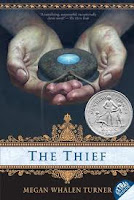Today is day 8 of NaNoWriMo, and so far, so good, I’ve been able to write 17,245 words. That’s an average of over 2,000 words a day! I am making an effort to write first thing in the morning, when I’m at my best and when I am less likely to be interrupted. Usually that means I am sitting here at my computer between 6-8am.
I’ve been writing and only writing, not reading over what I previously wrote, and I think this method is working well for me. If I start reading back at what I wrote before, my inner critic becomes engaged, and all of a sudden it is not about being creative but about excellence and perfection or, worse, embarrassment and shame. I find that I really work much better if the critic is off to the side, minding his own business. Every once in a while he rears up his head and comments on my progress, and I politely ask him to back off. I don’t need him right now. I want to allow the words, unhindered, to flow.
I hope that when I am done with the first draft (as I feel fairly confident I am going to do) I can engage the services of my inner critic not as a critic but as a “feedbacker.” I think there’s a lot he can help me with, as long as he remembers that his job is to support and build and not to crush and shame. My cousin told me a good quote in Russian for this (and I’m using her translation): The first pancake always comes out in a ball. Similarly, I expect that this first draft is not going to be the end of the process. There’s going to be a second, and a third, and maybe a number twenty-third draft as well. There’s going to be revision. But the only way I can move from a ball to a beautiful pancake ready-to-be-served is with encouragement and love. It’s impossible to cook a nicely-shaped, yummy pancake — or a magical novel — with censure and hurt.
Other than discovering that NaNoWriMo does in fact motivate me to write, I’ve also noticed something else. I have more self discipline than I used to. I think all this meditation and qigong and Reiki practice is really paying off. I am better able to concentrate and to sit down for something that I know deep down inside to be very important to me. I am also, somehow, better able to let go. I put down the words, and whether or not the critic mumbles something from his place of semi-exile, I let my written words flow. There will be a time to review them later.
Having written one novel before, even if I did decide, after who-knows-what-number version, to leave it, I feel both awed and overwhelmed by the thought of what comes after the first draft. I know the task that is ahead of me, and I know what it feels like to have put so much effort into something meaningful to me only to discover that it is just not going to bear fruit anytime soon. I try to let these thoughts go too. Right now there are only two things I am doing, and they are allowing the story to tell itself and myself to feel the fun of it without thinking too much ahead.
Tomorrow I am going to a meditation daylong at Spirit Rock about releasing the inner critic. Very apropos, I think. I hope it will help with the writing as well. I have dreamed about writing a novel for so long, I’ve written and hoped, cried, shut down, avoided writing for months and months, and then found myself trying again and again. A part of me wants so, so much for it to happen finally, but I’ve decided to let go of expectations and hopes, and even of dreams. I have decided to let whatever happen, happen, and to stop interfering.
Many years ago when I was a student at Stanford, one of my professors said to me that in order to write a doctorate you need to have a fire burning in you. For me, the fire has always been in writing a novel. Sometimes it was on low heat. Sometimes on high. But it was always there, burning away, sending desire after desire into the sky. So we will see, won’t we, what will come of this new endeavor, this new concept for my novel. I will keep you updated as I continue following the NaNo path. For now, all is well. I hope all’s well also in your life.


